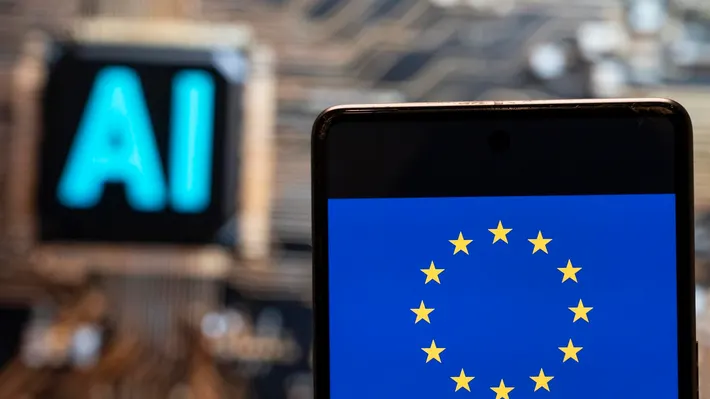European Union negotiators have reached a deal on the world’s first comprehensive regulations for artificial intelligence (AI). The agreement will establish legal oversight of AI technology, which has the potential to revolutionize daily life but also poses risks to humanity. The negotiators, representing the European Parliament and the bloc’s member countries, overcame major differences on controversial issues such as generative AI and police use of face recognition surveillance. The agreement, known as the Artificial Intelligence Act, is a tentative political agreement that still needs to be voted on by the European Parliament. While some civil society groups have expressed concerns about the deal, the EU’s regulations can serve as a model for other countries considering AI regulation. The law is expected to take effect in 2025 and includes financial penalties for violations. One key aspect of the agreement is the regulation of foundation models, which are the advanced systems that underpin AI services like OpenAI’s ChatGPT and Google’s Bard chatbot. These models will be subject to technical documentation requirements, compliance with copyright law, and enhanced scrutiny for potential risks. The use of AI-powered face recognition surveillance systems was another contentious issue, with exemptions allowing law enforcement to use these systems for certain serious crimes. Despite criticisms and concerns about loopholes, the deal represents a significant milestone in establishing clear regulations for AI use in the EU. (source: abcnews)
Recent Posts
- Unmasking Sexual Corruption: The Disturbing Truth Behind the Cannes Festival Exposed by American Media
- Supreme Court Upholds Revocation of Jammu and Kashmir’s Special Status, Orders State Restoration and Elections
- Muslim American Leaders Rally Against Biden’s Stance on Israel, Threatening Electoral Support
- UK Signs New Treaty with Rwanda to Revive Controversial Migrant Plan
- Iran Criticizes Security Council’s Failure in Ensuring Peace, Calls for Democratic Reform
Most Used Categories
- WORLD (8)
- United states (1)
- England (1)
- SCIENCE & TECH (5)
- VIDEO (4)
- OPINION (3)
- ECONOMY & BUSINESS (2)
- CULTURE & ARTS (2)

